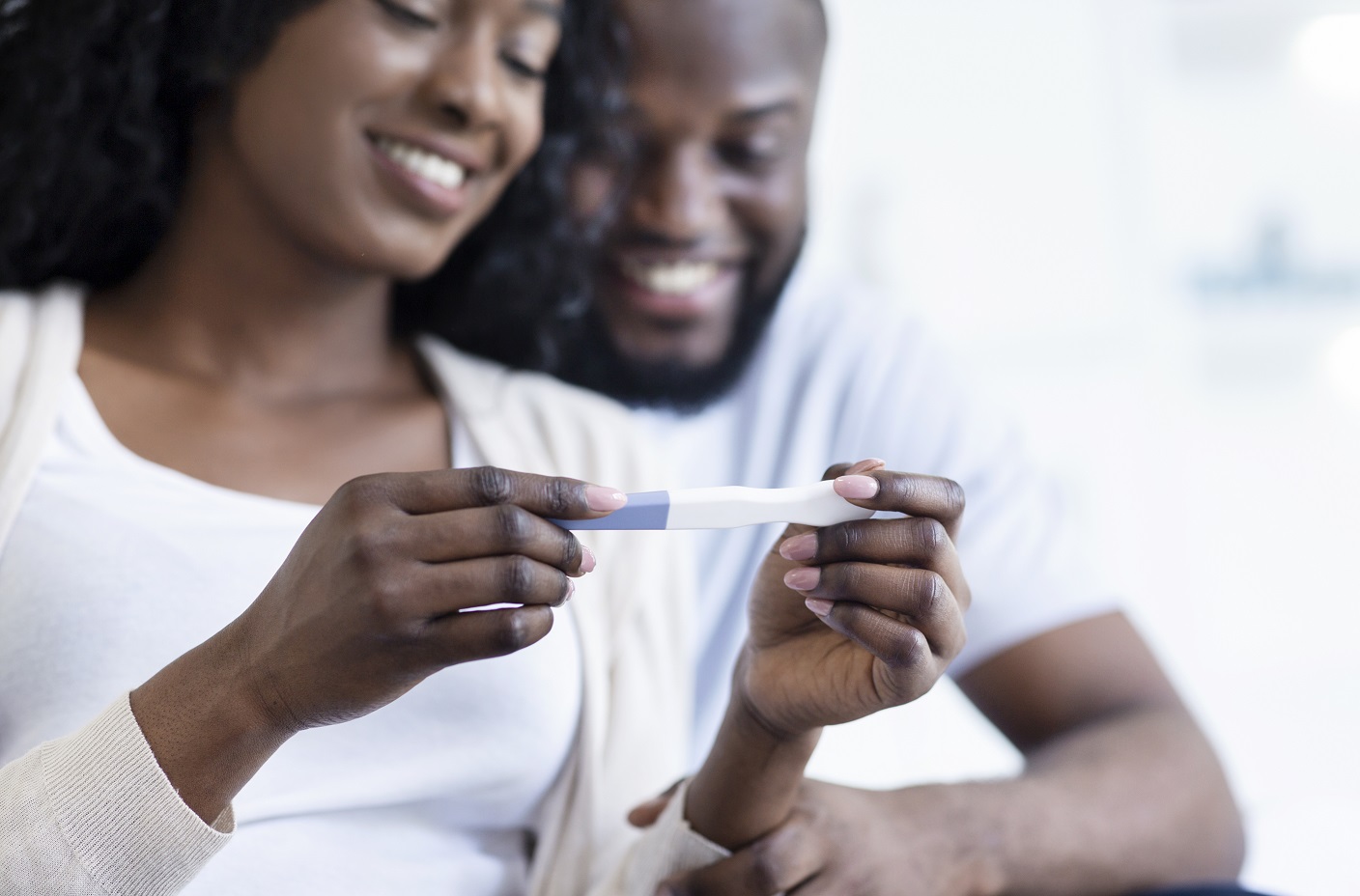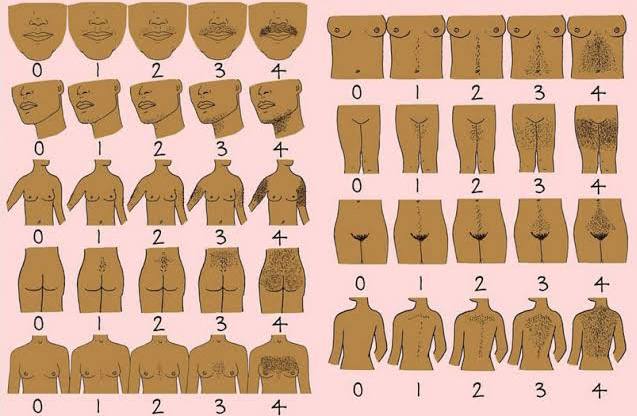Assess your women's health
Take the test and receive the results by email. The materials that we prepared for the test were created in collaboration with doctors.
How it's works
1
Answer the questions in the questionnaire
2
Enter your email in the form
3
Get the result by email within 5 minutes
Unique materials

- Your health assessment by a doctor.
- Professional recommendations for analyses and examinations.
- Helpful tips for everyday life.
What our patients say



Hurry Up!
Access to free test is a limited offer that we offer to everyone for a month.
Hi!
Question 1: Do you have a regular cycle?
Question 2: Do you have spotting in the middle of your cycle?
Question 3: Can you describe the nature of your discharge during your period?
Question 4: Do you experience pain during your period?
Question 5: Here is a scale for assessing the degree of hair growth in women. Assess your degree of hairiness
Question 6: Consider if you have been diagnosed with any of the following:
Question 7: Did your gynaecologist diagnose changes in your cervix? If so, which ones?
Question 8: Do you have complaints about vaginal discharge?
Question 9: Do you have the following complaints? (choose all you have)
It was difficult for you to answer the question about the regularity of your cycle. Let's figure it out. The first day of the cycle is the first day of spotting, and the last day is the last day before the start of the next menstruation. Few numbers:
- In a healthy woman, the cycle lasts approximately 24-38 days.
- The average duration of menstruation is 3-7 days.
- The cycle is repeated monthly; usually, you should have at least 8 ovulatory cycles out of 12 cycles per year.
If menstruation does not come every month, but once every 2-3 months, such a cycle is considered irregular. Doctors recommend tracking the cycle to avoid some problems.
Bloody discharge in the middle of the cycle, which you noted as your feature, is a reason to contact a gynaecologist. They can be caused by endometriosis, diseases of the cervix, trauma.
Sometimes spotting in the middle of the cycle can be the norm: an ovulatory reaction. In this case, they are completed within 36 hours.
You described your menstrual flow as scanty. Such discharge can be the norm if their character has not changed and they have been like this all their lives. In this case, the woman has no problems with conception.
However, if menstruation was once more abundant and suddenly became scarce, this is a reason to contact a gynaecologist. The reasons may be different:
- premature ovarian failure,
- formation of intrauterine adhesions (Asherman's syndrome),
- severe stress
- drastic weight loss
- perimenopause,
- something other.
You found it difficult to describe the nature of the discharge during menstruation. Let's help you.
A woman can typically lose up to 80 ml of blood for all days of one menstruation. This volume is approximately equal to 6 tablespoons. Anything above is considered heavy menstruation.
Now you can find a suitable definition: are they scarce, moderate or abundant?
Painless periods are regular. It's great that you don't usually experience pain during your period. If the pain still appears, be sure to consult a doctor: pain can be a symptom of gynaecological diseases.
And remember, you don't have to endure pain.
You noted that during your period, you have mild pain. This symptom is called dysmenorrhea. Mild soreness these days is acceptable.
However, it is essential to exclude the presence of diseases that can provoke pain (endometriosis, adenomyosis, uterine fibroids, ovarian cysts, pelvic adhesions, inflammatory diseases of the pelvic organs, some uterine anomalies). To exclude them, sign up for a consultation with an obstetrician-gynaecologist.
You noted that during menstruation, you experience severe pain. Doctors describe this symptom as dysmenorrhea. In some cases, the cause of the pain can be diseased (endometriosis, adenomyosis, uterine fibroids, ovarian cysts, pelvic adhesions, inflammatory diseases of the pelvic organs, some uterine anomalies). They can prevent pregnancy.
We advise you to contact a gynaecologist and find out the cause of the pain.
You noted that during menstruation, you experience unbearable pain. This pain is called dysmenorrhea. In some cases, the cause of the pain can be diseased (endometriosis, adenomyosis, uterine fibroids, ovarian cysts, pelvic adhesions, inflammatory diseases of the pelvic organs, some uterine anomalies). They can prevent pregnancy.
We advise you to contact a gynaecologist and find out the cause of the pain.
From 11 to 13.
We hope you managed to accurately assess the degree of hair growth on your body. The fact is that there is such a disease - hirsutism. This is excessive male pattern hair. If your score is between 11 and 13, then you probably have borderline hirsutism. It is necessary to consult an endocrinologist: he will exclude diseases that cause hirsutism.
More than 14.
We hope you managed to accurately assess the degree of hair growth on your body. The fact is that there is such a disease - hirsutism. This is excessive male pattern hair. If your score is greater than 14, then you probably have pathological hirsutism. It is necessary to consult an endocrinologist: he will exclude diseases that cause hirsutism.
You mentioned that you were diagnosed with polycystic ovary syndrome. PCOS can cause irregular menstrual cycles. This happens due to rare ovulation or its complete absence. In this case, there may be problems with the onset of pregnancy.
With PCOS, active male-pattern hair growth and acne can be observed.
There is currently no cure for PCOS, but supportive care is available to help:
- control the cycle,
- normalize hormone levels,
- stimulate ovulation.
Then you can get pregnant.
You noted that you had been diagnosed with decreased ovarian reserve. Its symptoms are usually:
- shortening of the menstrual cycle,
- "loss" of several cycles (then the number of ovulatory cycles per year decreases - typically, a woman has at least 8-9 ovulatory cycles per year).
The decreased ovarian reserve may be the cause of infertility and early menopause. If you notice changes in the cycle, contact your gynaecologist for advice.
You noted that you had been diagnosed with a sexually transmitted infection. STDs include the causative agents of some diseases:
- gonorrhoea (Neisseria gonorrhoea),
- chlamydia (chlamydia trachomatis),
- trichomoniasis (trichomonas vaginalis),
- mycoplasmosis (Mycoplasma genitalium).
If you have any of the above, contact your gynaecologist. Such diseases require treatment.
If you now have problems with conception and were once diagnosed with STIs, you should evaluate your fallopian tubes' patency. All these infections can obstruct the tubes, inflammatory diseases of the pelvic organs.
You noted that the doctor diagnosed you with such changes on the cervix as NILM (type - 1). This is the norm. Schedule an examination with a gynaecologist on this issue in 1-3 years.
You noted that the doctor diagnosed you with such changes on the cervix as NILM (type - 2, inflammatory smear). If you have any discharge or other complaints, you need to determine their cause. It is essential to exclude the presence of sexually transmitted infections.
You noted that the doctor diagnosed you with such changes on the cervix as ASCUS. If you are under 25 years old, you need to repeat the Pap test in a year.
If you are over 25, you should be tested for the human papillomavirus (HPV) and have a colposcopy (examination of the cervix under magnification).
You noted that your doctor diagnosed you with cervical changes such as LSIL (mild cervical dysplasia, CIN I). If you are under 25 years old, then the next smear is recommended to be done in a year.
If you are over 25, you need to get tested for the human papillomavirus (HPV). If the result is negative, then the next HPV test and a Pap test (fluid cytology) and a colposcopy (examination of the cervix under magnification) should be done in 6-12 months.
If you are over 25 years old and have a positive HPV test, you should have a colposcopy with a possible cervical biopsy. Your gynaecologist will decide this.
When asked if you were diagnosed with changes in the cervix, you answered I don’t know. Let's figure it out. An examination of the cervix and a smear for cytology help detect possible cervical cancer on time (screening).
The most effective screening methods are:
- PAP test (liquid-based cytology),
- testing for HPV (qualitative determination of the human papillomavirus),
- co-test (PAP test + HPV test).
Before the age of 21, such screening is usually not done unless the woman has symptoms of immunocompetence (development of an immune response). The age of onset of sexual activity is not essential.
At the age of 21-29 years, it is recommended to have a Pap test every 3 years. Or you should start screening at age 25 and then get tested for HPV every 5 years.
For women aged 30-65, any of the following strategies are acceptable:
- double testing (PAP test and HPV test) every 5 years (best option),
- HPV testing every 5 years or cytology every 3 years.
You answered yes to the question about the presence of vaginal discharge. Remember that normal discharge is odourless. Let's say a slightly sour smell - in this case, the discharge is not abundant, transparent or slightly whitish.
The most common causes of abnormal vaginal discharge are:
- bacterial vaginosis,
- Candidiasis (thrush)
- aerobic vaginitis.
Less often, their causes are STIs (sexually transmitted infections):
- gonorrhoea (Neisseria gonorrhoea),
- chlamydia (chlamydia trachomatis),
- trichomoniasis (trichomonas vaginalis),
- mycoplasmosis (Mycoplasma genitalium).
In any case, if you are concerned about discharge, see a gynaecologist. Treatment will be prescribed, and the problems will go away.
You answered no to the question about whether you have vaginal discharge. Great! This is one of the signs of a woman's well-being.
You noted that you experience pain during intercourse. It may be related to the positions you and your partner choose. Try to find positions in which you will not be hurt.
However, pain can be a symptom of endometriosis, uterine fibroids, ovarian cysts. It is essential to see a doctor to rule them out.
You noted that during intercourse, you suffer from dryness. Such sensations may be a variant of the norm: simply the excitement was insufficient.A
However, dryness can occur due to estrogen deficiency (usually occurs with premature ovarian failure or during menopause).
You noted that after intercourse, you have spots. This is not the norm. This happens due to internal trauma during intercourse, in the presence of changes in the cervix or endometriosis.
We recommend that you immediately contact a specialist: he must examine and make a diagnosis. If something worries you - you can always ask our gynecologist a question anonymously on the forum and get a quick answer
You noted that you experience pain during intercourse. It may be related to the positions you and your partner choose. Try to find positions in which you will not be hurt.
However, pain can be a symptom of endometriosis, uterine fibroids, ovarian cysts. It is essential to see a doctor to rule them out.
You noted that during intercourse, you suffer from dryness. Such sensations may be a variant of the norm: simply the excitement was insufficient.
However, dryness can occur due to estrogen deficiency (usually occurs with premature ovarian failure or during menopause). It is worth contacting a specialist for a more accurate diagnosis. If something worries you - you can always ask our gynecologist a question anonymously on the forum and get a quick answer
You noted that you experience pain during intercourse. It may be related to the positions you and your partner choose. Try to find positions in which you will not be hurt.
However, pain can be a symptom of endometriosis, uterine fibroids, ovarian cysts. It is essential to see a doctor to rule them out. If something worries you - you can always ask our gynecologist a question anonymously on the forum and get a quick answer
You noted that during intercourse, you suffer from dryness. Such sensations may be a variant of the norm: simply the excitement was insufficient.
However, dryness can occur due to estrogen deficiency (usually occurs with premature ovarian failure or during menopause). It is worth contacting a specialist for a more accurate diagnosis.
You noted that after intercourse, you have spots. This is not the norm. This happens due to internal trauma during intercourse, in the presence of changes in the cervix or endometriosis.
We recommend that you immediately contact a specialist: he must examine and make a diagnosis. If something worries you - you can always ask our gynecologist a question anonymously on the forum and get a quick answer
You noted that during intercourse, you suffer from dryness. Such sensations may be a variant of the norm: simply the excitement was insufficient.
However, dryness can occur due to estrogen deficiency (usually occurs with premature ovarian failure or during menopause). It is worth contacting a specialist for a more accurate diagnosis. If something worries you - you can always ask our gynecologist a question anonymously on the forum and get a quick answer
You noted that after intercourse, you have spots. This is not the norm. This happens due to internal trauma during intercourse, in the presence of changes in the cervix or endometriosis.
We recommend that you immediately contact a specialist: he must examine and make a diagnosis.
If something worries you - you can always ask our gynecologist a question anonymously on the forum and get a quick answer
Almost finished
The final estimated price is :
Summary
| Description | Information | Quantity | Price |
|---|---|---|---|
| Discount : | |||
| Total : | |||
How useful was this post?
Click on a star to rate it!
Average rating 4.4 / 5. Vote count: 14
No votes so far! Be the first to rate this post.


